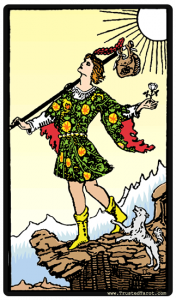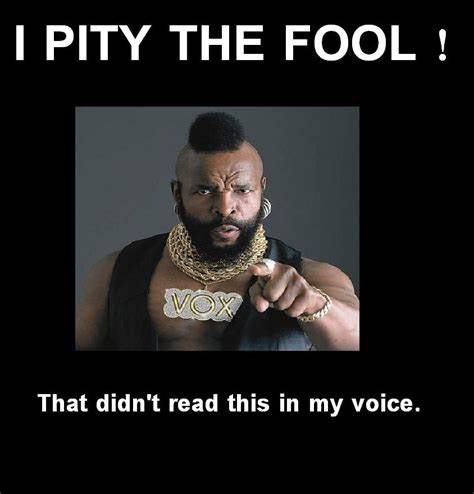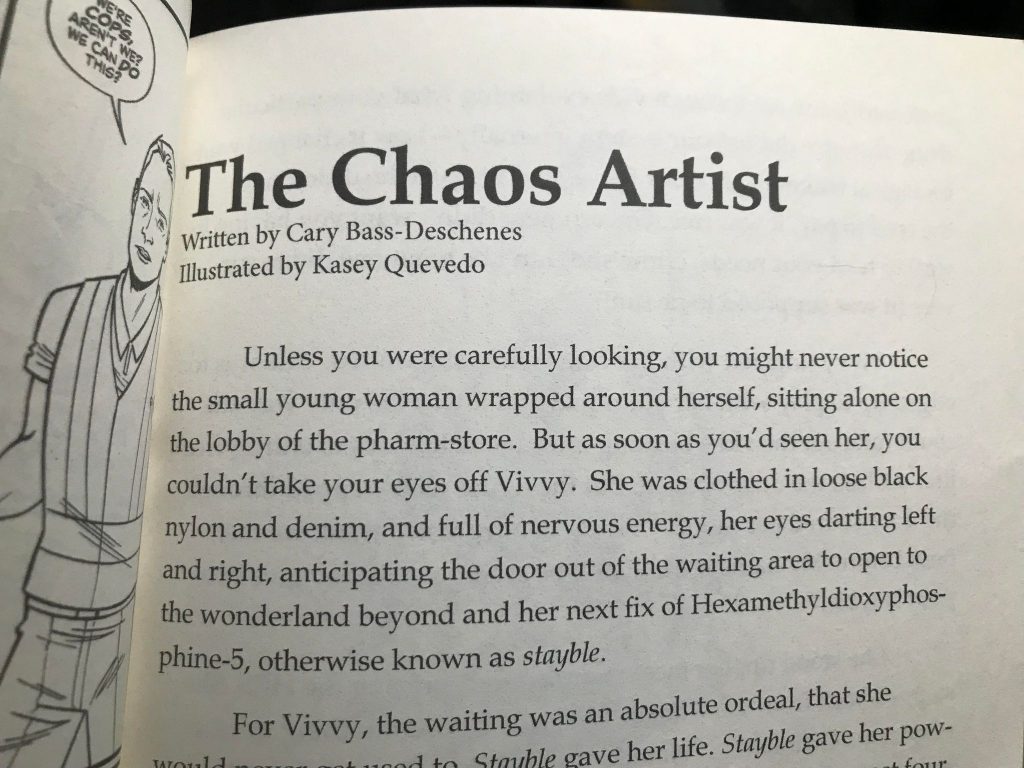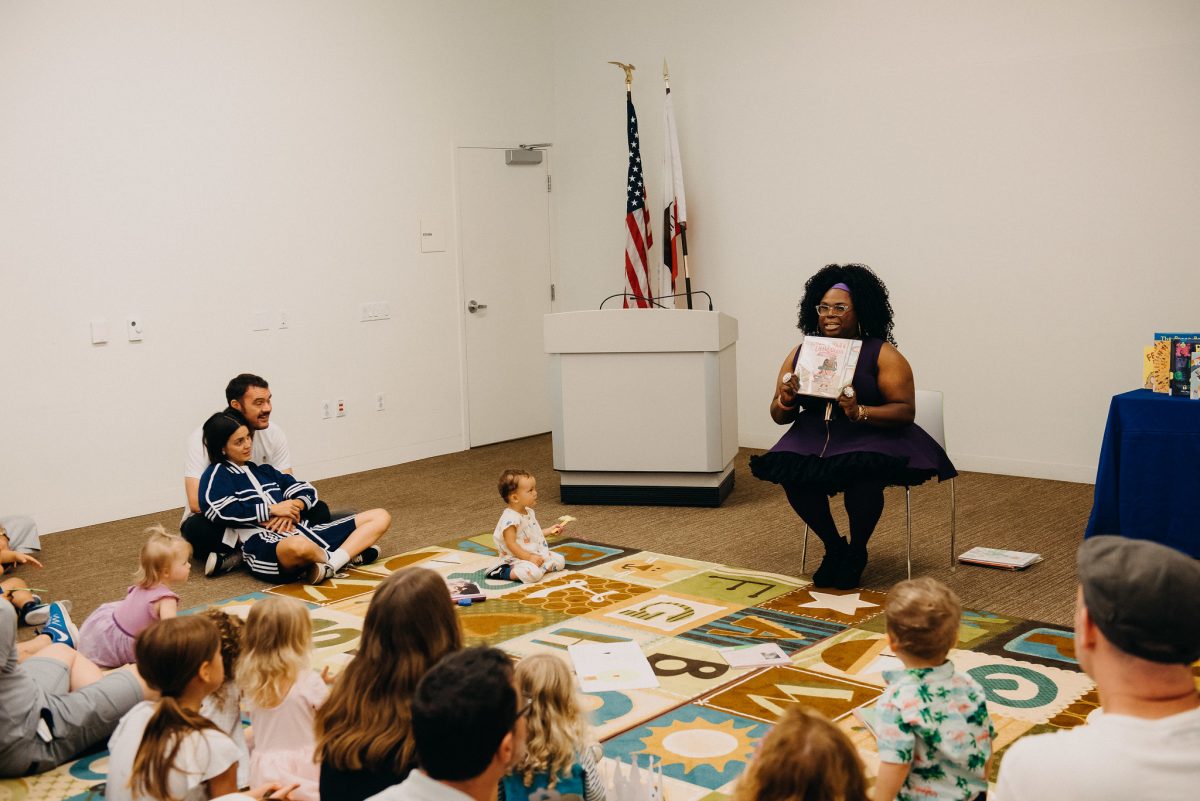What is the gay grooming libel?
Recently, a wave of attacks, propaganda and legislation attacking LGBTQ people has washed over the United States using a very specific buzzword: grooming. These attacks have targeted politicians, schools and teachers, non-profit organizations as well as companies with pro-LGBTQ stances, using the implication that allowing children to be exposed to queer identities or relationships is equal to “grooming” them. The word itself is at present a right-wing buzzword used to encourage state Republicans to propose and enact anti-LGBTQ legislation and to motivate an electorate to support those politicians in doing so.
But while this degrading stereotype about LGBTQ people is presently prominent in the public dialogue, the false perception that LGBTQ people, and in particular gay men are predators of children is not new. It is rooted in 1) a specifically religious concept that LGBTQ people are inherently evil because of a handful of biblical interpretations related to sexual activity among same-sex partners. And 2) because two people of the same assigned sex at birth cannot produce children, that same-sex attraction is somehow contrary to natural law and/or evolution. Therefore 3) in order for specifically lesbians and gay men to “make more” of ourselves we must “recruit” children at a young age.
There are faithful Christian and Jewish responses to counter 1) and a wealth of science that disprove 2). It is the current manifestation of 3), the grooming libel, that is fanning the flames of the harmful legislation, violent threats and disruptive protests that we are increasingly hearing about today.
What is Grooming?
The term “grooming” is thrown about deliberately to create horror. Make no mistake, actual child grooming is an appalling and heinous activity that has severe and lifetime emotional and mental consequences on the victim’s mind. The well-cited lead paragraph on Wikipedia is as follows:
Child grooming is befriending and establishing an emotional connection with a child, and sometimes the family, to lower the child’s inhibitions with the objective of sexual abuse. Child grooming is also regularly used to lure minors into various illicit businesses such as child trafficking, child prostitution, cybersex trafficking, or the production of child pornography.
Child grooming, Wikipedia
“Child” in this definition, may include anyone up to the age of majority of 18, which is an important distinction, because the vast majority of reported victims are adolescents.
The statistics of child grooming in the United States are difficult to determine because many cases go unreported. However, the National Center for Missing and Exploited Children (NCMEC) reports that there were more than 19,000 cases of child sexual exploitation reported to their CyberTipline in 2018, representing a 36% increase from the year before. The majority of victims were between the ages of 12 and 17, although almost 1,000 were under the age of 12.
In 2021, there were over 44,000 reported instances of Online Enticement of Children for Sexual Acts. While the increase may be a result of better reporting and more widespread knowledge of the CyberTipline, the total number is nevertheless a reminder that children still remain at risk of sexual predators.
That’s what makes the current propaganda against LGBTQ people so harmful, not only to the target population, but also to actual victims of child grooming; because it waters down the definition of grooming and makes it harder for actual victims of child grooming to come forward, as they may fear they will not be taken seriously.
Where does the Gay Grooming Libel come from?
While different myths about “homosexual behavior” have existed throughout history, modern negative stereotypes of gay people found root in the early part of the 20th century, about the time when advancements in psychology and modern brought the first glimmers of public visibility of LGBTQ people in America. During the sixties and the sexual revolution, in the midst of the civil rights movement, gay people began to be more visible while police raids on bars and popular outdoor cruise areas are regularly featured in the newspaper blotters; providing fuel to the stereotype of the perverse, predatory gay man.
As gays and lesbians began to see some protections against discrimination in the 70s, moral outrage from self-designated “family organizations” such as Anita Bryant’s Save Our Children campaign were quick to depict gay people as molesters and predators in order to fight against anti-discriminatory victories. Notable in California was the (thankfully failed) 1978 ballot initiative to take gay teachers out of education and prevent them, as the initiative’s promoter Senator John Briggs said, “from influencing and teaching our young.”
Despite the failed initiative, gay people remained unworthy second-class citizens, as evidenced by the Reagan administrations lack of response to the AIDS epidemic, because in conservatives’ eyes, it was only affecting the dregs of society. Major motion pictures such as Cruising and Making Love, furthered the perception of gay men as either sexually consumed or as an active threat to traditional marriage. Widely circulated pamphlets such as Ethan Persoff’s Homosexuality: Legitimate, Alternative, Deathstyle promoted the idea that gay men are dirty, disease ridden, addicted to sex and out to get children.
The stereotype continued to be publicized through the 90s and 00s, while moral crusaders fought against both the right to adopt and raise children and the right to be married. However, as positive depictions of LGBTQ people in movies and television began to dislodge the negative ones from earlier years, public attitudes toward us began to change for the better, even in conservative circles. Widely visible in the 2016 presidential campaign were signs promoting “GAYS FOR TRUMP,” and that year the GOP candidate for president received an unprecedented 14% support among LGBTQ people.
Along with the election wins of the 2010s and the Supreme Court decision in “Obergefell v. Hodges” there remained an underlying, mostly quiet resentment among the right-wing fundamentalist crowd who felt imposed upon by a rather progressive shift in public policy with regard to LGBTQ rights. This is almost certainly a contributing factor to the shift in the 10s when the moral outrage turned from gay and lesbian people to trans people, and in particular trans women. The same idea that gay men and women were somehow recruiting America’s youth to be new gay men and women, so were trans women seeking out your little boys to transform them into new trans women but also seeking to use women’s bathrooms so they can prey upon your little girls. Note the contradiction inherited in those beliefs, as there nevertheless exist trans men, who were less of a target but were also expected to use women’s rooms while also nevertheless accused of preying upon little girls. This discrepancy in the targeting of trans women verses trans men was a result of sexist attitudes about gender, roles, and the common perception that a masculinized girl is a tomboy but a feminized boy is an abomination.
Since 2019, the anti-trans narrative has expanded to include drag queens. While the first drag queen story hour began in 2015, it wasn’t widely known outside San Francisco and queer and ally circles, in 2019 the events had spread to other major metropolitan areas, and conservative sources began to report on them, and a white nationalist group called “American Identity Movement” disrupted one in New Orleans. At the same time a video of a drag queen performing “Baby Shark” for a 2 year old surfaced and went viral, leading to moral outrage. However, along with everything else, the COVID pandemic shut them down in 2020.
As the world began to open up again, so did Drag Queen Story Hour, along with far-right ideologues pushing the narrative that children are being indoctrinated to become trans people. Additionally, as drag queens are more often than not, gay men, the grooming narrative is being extended once again to include other LGBTQ people.
The concept of grooming has become so watered down in far-right-wing circles that it includes even affection between two people of the same sex in front of children, as if children are traumatized by even seeing that gay relationships exist.
How are Queer People Made?
But the indoctrination of young people by LGBTQ people is a myth. While people who are gender or sexuality fluid exist, and there are some people who profess to have chosen to be trans or gay, these are a staggering minority.
Full disclosure: my experience with trans identity is limited. While I consider myself non-binary presenting with my sex assigned at birth, I haven’t fully explored what that means, and as I don’t suffer from body dysphoria (except perhaps where my weight is concerned) and for all intents and purposes, I am cis male. My non-binariness is primarily about pronouns and comfort level. My preferred pronoun is they/them/their but I accept other pronouns as they happen. I also don’t believe any trait is inherently “masculine” or “feminine” and that gender roles are primarily socialized. And while our species has evolved with males having larger and stronger forms than females, these are simply averages, in both assigned birth genders there are a large enough percentage of outliers to dispute any idea that “strength” is male and “roundness” is female and other common assumptions.
However much gender is a social construct, it is nevertheless a construct that exists, and some people are not comfortable with their assigned genders and that some people do feel gender dysphoria. And in my experience, for the huge majority, feelings of discrepancy between one’s self and their assigned gender start long before puberty, much the same way that same-sex attraction does for most of us.
In every study that I’ve come across, there are no family traits more common among men who are primarily attracted to men except for family size. And gay men only tend to come from larger families. A boy in a family of six children is a little bit more likely to become primarily attracted to men than a boy who is an only child. But there are plenty of only children who grew up to be gay men.
Furthermore, this slight advantage is the same no matter whether the child was raised as an only child or not. An boy who grew up as the sole child of adopted parents who came from a family of six is just as likely to be primarily attracted to men as one who grew up with the family of six.
In these studies, no other trait is necessarily more common among gay men. Not single parent versus married parents. Not birth order. Not number of sisters versus number of brothers. Not race or ethnicity. Not urban born versus rural born (although the decision to come out may be impacted). Some families seem predisposed to having gay children but there’s nothing that seems to be common among them.
Even tribal cultures where there is no gay visibility whatsoever cannot actually claim some kind of immunity to there being same-sex attraction among their males. I researched “homosexuality among the Maasai” a few years ago and found two articles that seemed to contradict each other. One article, which interviewed tribesmen in a Maasai village, when asked about it, said that there was no word for it, same-sex attraction was a concept alien to them. Another article, however, explained that lack of visibility. Gay migrants from Masaai have found their way to Nairobi, where being gay is a difficult life but not unsustainable. The conclusion from this is that yes, gay people emerge from the Maasai and find their way out of an impossible life at home to a reasonable life elsewhere, having left their families of origin unaware of why they’ve left or possible silently expelled by them.
What Turned Me Gay?
Gay children come from straight parents (with some exceptions). While nobody’s account is necessarily typical, I’ve heard similar accounts from many other gay men as to my own.
I grew up 3rd of 4 children. Growing up, I didn’t know any adult gay people; in fact, I didn’t know any other gay people at all until I was in high school. I can remember being interested in boys bodies, but not interested in playing with other boys around the age of 7 or 8. My parents separated not long after.
I remember seeing Anita Bryant’s crusade on the news as a child as well, and learned all the myths circulating at time about same-sex attraction, that it was evil, that it was unnatural. Billy Crystal’s character on Soap was the closest thing to a positive adult gay role model that existed, but his character was tragic and sexless.
When puberty hit, my sexual orientation was evident. I dreamed about boys. I thought about boys. I fantasized to boys. I masturbated to the thought of boys. And I kept it all to myself because if anyone knew about it they would hate me and make fun of me and send me away.
There was nothing “luring” me to the “gay lifestyle.” I was bullied for being a “sissy” when I was younger, so I socialized myself to be the opposite of what a “sissy” was. Any of my classmates in high school that were perceived to be gay were mocked and/or bullied themselves, and the last thing I wanted to do was associate with them.
I was a teenager who had nothing but negative associations with same-sex attractions, but when I closed my eyes, I thought about men. I had sex with girls several times and every time it was a disaster. At 16, when I had my first appropriately aged sexual encounter with a boy everything was perfect but it only happened once and we had to keep it a secret. It would be at least a year before I had another appropriately aged sexual encounter with another boy. (There were other encounters, see post entitled “I was groomed“.)
Whatever it is that makes men gay takes place long before our adult hormones begin. The explanation that I find most compelling, is that the drive toward same sex attraction is the combination of one or several “trigger genes” and certain hormones during pregnancy.
I’m very careful in my language here though. I refer to men who are primarily attracted to men. Many studies of sexuality have been done, and the Kinsey studies from the early 20th century continue to have value today. That our sexuality is on a scale, not binary. And while the majority of people fall on one end of the scale or another—Kinsey’s scale is from 0 to 6, 0 being totally attracted to the opposite sex and 6 being totally attracted to the same sex—many people fall in between.
Which is there are people who have had sex with men who have “found Christ” and foresworn their sexuality and have had meaningful sexual relationships with their wives. They haven’t changed anything, the sexual attraction toward the opposite sex, for them, has always been there to some degree. The same reason some of those ex-gay relationships inevitably fail. Because for them, it’s not there and never has been and no amount of prayer will make it there.
Personally, I am a 5. Both at the end of high school and a couple of years later I had fulfilling sexual encounters with women. However, in both cases, men were present. And in neither case were the women particularly attractive to me physically or otherwise. There are women I’ve been physically attracted to, and I probably could have, at one time, engaged in sex with them, but it’s not something that I’m lacking as I also desire to retain a meaningful connection to my sexual partners, and I’m not romantically inclined toward women at all.
Because relationships are not simply about sexual attraction, they’re about romantic partnership as well. Romance is the first thing we learn as children when we see our parents and other adults in the world. Not sex.
Yes, but isn’t gay all about sex?
Part of the grooming libel is that “exposing children to same-sex relationships is grooming because same-sex relationships are only about sex and therefore it’s exposing children to sex.” That’s not what grooming is. It’s exposing children to sex, people who are incapable of consent, whether it be indecent material or nudity, and it’s the same difference whether the sex they’re exposed to is heterosexual, homosexual or self-gratifying.
Why does difference matter? Because in recent years awareness of child grooming has grown in the media, and it’s an easily accessible touch word with readily established negative connotations. Saying “gay people are exposing children to sex” is much more easily refutable.
Because men or women kissing or holding hands or hugging is not sex. Men dressing up as drag queens is not sex. Trans people are just people who are trying to live their lives in their gender of choice and has nothing to do with sex.
But underscoring this insidious libel of grooming is the idea of indoctrination, which is where the real fear is. It’s not necessarily a belief that letting children see adult healthy (or unhealthy) gay relationships or trans people in the media or in person is going to traumatize them or turn them gay or trans: because there’s no evidence to support it, that’s just part of the libel. It’s that children will grow up with the idea that gay relationships are acceptable and that trans people are okay. And if they believe that, how can they believe our faith or how can they support our politics or how can they believe anything we tell them?
They’re already losing. Even among evangelicals, a majority of Millennials support same-sex marriage. And more of today’s kids are being raised by Millennials. And the grooming libel is just the latest volley in what they perceive as a culture battle, and is supplanting the previous moral outrage over Critical Race Theory. Because conservatives are stuck with the idea of a culture war, and they know the’re losing. So they have to develop a bad guy, and whether it’s immigrants, black people, LGBTQ people, or whoever the next target to bring people into a state of fear, their goal is to drive votes to increase disproportionate representation to bring us fully out of a Democracy and into a Constitutional Republic.
The grooming narrative is a volley in a broader “culture war” being planned and fought by the far-right. It’s defamation against LGBTQ people, reinventing a libel that has roots deep in American history in times when simply being gay would get you jailed or killed. It is designed to divide and conquer the American left, and is one among several organized efforts by the far-right to secure control of American government, despite a climate of public opinion that is fairly solidly against them.










